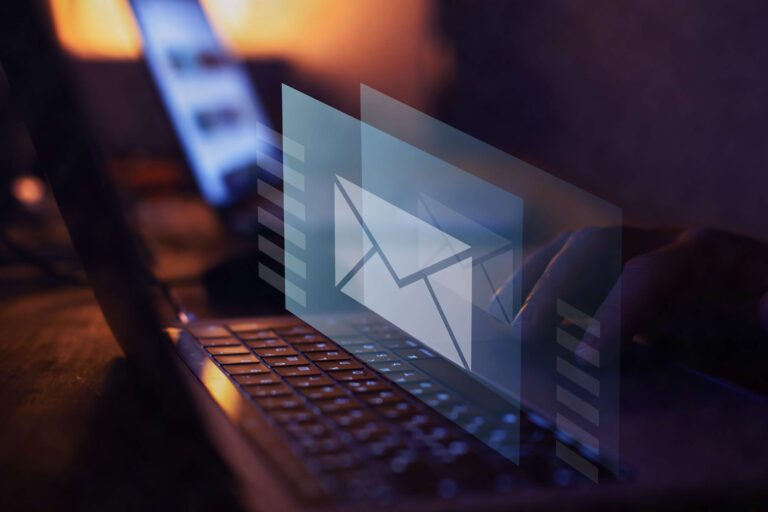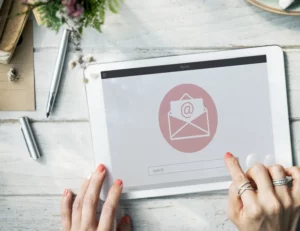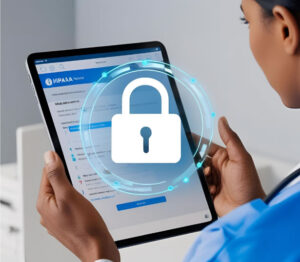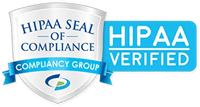Email is widely used to share updates, coordinate care, and manage appointments, but without proper safeguards, it can expose sensitive information. HIPAA requires these messages to be secure, encrypted, and limited to authorized recipients. HIPAA compliance is essential in healthcare email communication, where protecting patient privacy is a legal and ethical priority.
Different medical specialties handle protected health information differently, making it essential to adapt email practices accordingly. Whether it’s behavioral health or general medicine, aligning communication with specialty-specific privacy needs helps ensure full compliance. Taking a proactive, thoughtful approach to HIPAA prevents legal issues, strengthens trust, and supports high-quality patient care.
Key HIPAA Requirements for Email
HIPAA sets strict rules for email communication. It requires encryption to keep patient data safe, and emails must be secure and only accessible to authorized people. Healthcare providers must use compliant email platforms that protect sensitive health information. Meeting these requirements is crucial for maintaining trust.
Patient information is sensitive and valuable. Keeping it private is not just a legal requirement but also a moral one. Unauthorized access to data can lead to serious consequences. Patients trust healthcare providers with their details. Protecting this information strengthens the relationship between patients and providers. It ensures everyone feels safe and secure.
Emails must be encrypted to comply with HIPAA. Secure platforms ensure that information is only accessed by the right people. Staff must be regularly trained on compliance and stay updated with HIPAA guidelines. Following these steps helps maintain a safe communication environment.
Basics of Achieving HIPAA Compliance in Emails
Ensuring HIPAA compliance in emails is crucial. Start with encryption, so only intended recipients can read messages. Use platforms designed for compliance. Train staff to follow secure practices. This keeps patient data safe and private.
Encryption changes emails into a secret code. Authentication checks who sends and receives messages. Security tools like firewalls protect against threats. These steps work together to keep emails secure. They help maintain privacy and trust.
Primary care doctors handle lots of sensitive information. They must use HIPAA-compliant email systems. Secure systems protect patient details during communication. By staying compliant, they ensure patient trust. Safe communication is vital for good care.
Specific Challenges and Solutions for Compliance
Healthcare specialties have unique challenges. Cardiology and oncology clinics handle private data. To stay compliant, use encrypted emails and train staff regularly on privacy rules. These steps prevent data leaks and keep information safe.
Secure emails are crucial in healthcare. They help send test results and set appointments safely. Always use encrypted platforms and check recipient details. Regularly update security practices for added safety. Following these steps keeps communication secure.
Specialty clinics manage sensitive health information. They use secure emails for reports and patient details. HIPAA compliance builds trust with patients. It ensures private data stays protected. Focusing on security supports quality patient care.
Tailored Compliance Strategies
Healthcare specialties need custom plans for HIPAA compliance. Each field, like cardiology or mental health, deals with unique data. To protect this data, use a secure email with encryption. Train staff regularly to follow best practices. These steps keep patient information safe and private.
Handling private info requires care. Encrypt emails to keep details secure. Always double-check addresses before sending. Regular updates help maintain security. These actions build trust and ensure protection.
Mental health workers handle very personal data. Using HIPAA-compliant emails is vital. These systems protect conversations between therapists and patients. Privacy helps create a supportive atmosphere. By following these practices, trust is maintained.
Unique Considerations for Privacy and Security
Different healthcare fields have special privacy needs. Dental practices, like others, manage health information. Using secure email systems is crucial to protecting this data. Encryption keeps messages safe and private, and training staff on best practices ensures data stays confidential.
Safe communication with patients is essential—Encrypt emails to protect sensitive information. Always check email addresses before sending any details. Offer regular training to keep staff up-to-date on security practices. Update software frequently to guard against new threats. These steps ensure communication stays secure.
Dental practices handle a lot of patient information. Using HIPAA-compliant email services helps keep it private. Encrypting emails for added security builds trust with patients. By following these rules, dental offices ensure confidentiality and safety.
Email Communication Needs in Dentistry
Dentists often need to email patient records and treatment plans. To protect this sensitive data, it’s crucial to use secure email services. Encryption is key to keeping emails private. Regular staff training on email security helps maintain compliance, ensuring that patient information remains confidential and protected.
Dentists must ensure they follow HIPAA rules when sharing records. Using HIPAA-compliant email services is essential. These services encrypt messages and require secure logins. Regularly updating security protocols keeps data safe. By doing so, dental practices can confidently exchange patient records while maintaining privacy.
Dentists often need to email patient records and treatment plans. To protect this sensitive data, it’s crucial to use secure email services. Encryption is key to keeping emails private. Regular staff training on email security helps maintain compliance, ensuring that patient information remains confidential and protected.
Dentists must ensure they follow HIPAA rules when sharing records. Using HIPAA-compliant email services is essential. These services encrypt messages and require secure logins. Regularly updating security protocols keeps data safe. By doing so, dental practices can confidently exchange patient records while maintaining privacy.
Pediatrics
Pediatricians handle specific and sensitive information about children. Secure communication with parents is vital. Emails should be encrypted to protect young patients’ data. Training staff on HIPAA compliance ensures proper information handling. By prioritizing security, pediatricians build trust with both parents and patients.
Dealing with minors’ health information requires care. Pediatricians must ensure emails are secure to protect young patients’ data. Encryption is vital to keeping this information private. Parents need to trust that communications are safe. Regular training helps staff manage data properly, building confidence in the care provided.
Obstetrics and Gynecology
OB/GYN professionals handle sensitive reproductive health information. Compliance with HIPAA is crucial in this field. Secure email systems protect delicate patient data. Encrypting messages helps maintain privacy. Staff training on HIPAA practices ensures correct data handling. This commitment to security reassures patients about their confidentiality.
Pharmaceuticals and Research
In pharmaceuticals and research, handling data securely is essential. Researchers must share information using HIPAA-compliant emails. Protecting patient data during studies is a top priority. Encryption and secure platforms prevent unauthorized access. Regular reviews ensure ongoing compliance. This approach protects both data integrity and patient privacy.
Communication Between Researchers and Healthcare Providers
Researchers and healthcare providers often need to share sensitive data. Using HIPAA-compliant email ensures this data stays private. Encryption is crucial for protecting patient information. Secure communication builds trust in the research process. It’s vital to use platforms that prioritize confidentiality.
Telemedicine and Remote Care
Virtual consultations have unique challenges. Ensuring patient privacy during these sessions is key. Using secure platforms for email communication helps protect data. Encryption safeguards the details shared between doctors and patients. Effective use of these tools makes telemedicine safer and more reliable.
Role of IT in Healthcare Email
IT plays a crucial role in implementing compliant email systems. They use key technologies to secure patient information. Regular training for healthcare staff is essential. Understanding how to use these tools maintains data security. By doing so, providers ensure that patient trust and privacy are upheld.
Final Thoughts
Compliance is important across all healthcare specialties. It protects patient information and builds trust. Following HIPAA guidelines ensures data security remains a priority. By staying informed and proactive, healthcare providers maintain strong patient relationships. Keeping data safe is essential for quality care.






